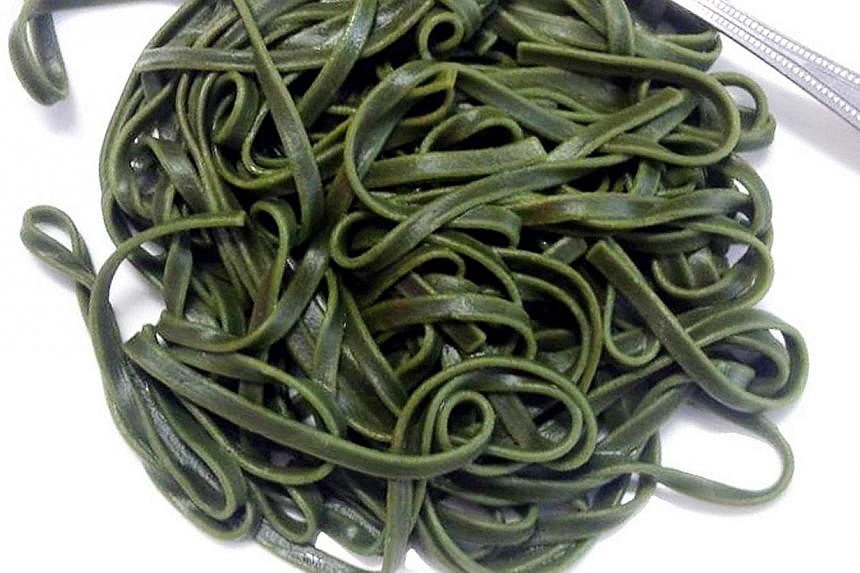The urban farming movement has come a long way from the pots of herbs and hydroponic lettuces grown by hobbyists on condo balconies. A team of entrepreneurs at start-up company EnerGaia has succeeded in producing commercial quantities of Spirulina, an eco-friendly superfood, using the sun-baked dead space on the top of Bangkok high-rises for a farm.

Founded and run by entrepreneur and engineer Saumil Shah, EnerGaia uses an innovative system of interconnected plastic bins, each holding 250 to 280 litres of liquid, with a pumping system to agitate the Spirulina mix and ensure the photosynthetic algae receive sufficient sunlight and nutrients. When the liquid reaches a certain density, the Spirulina is harvested, washed and extracted using a low-speed centrifugation system.
The resulting paste has a consistent texture with a water content of around 70 per cent and lasts around a month in the refrigerator. According to the company's founder, the Spirulina paste is ideal for mixing into smoothies for an added health boost, using in cooking to boost the protein content of various dishes, or just eaten straight from the jar. Spirulina (so called because of the coiled shape of its cells) is a single-celled blue-green algae that grows naturally in only a few warm, highly alkaline bodies of freshwater on the planet, such as Lake Chad in Africa.
It grows rapidly under the right conditions, doubling its weight in just a couple of days and is rightly considered something of a superfood.
It offers an exceptionally high protein content - 59 per cent to 65 per cent of its dried weight - is easily digestible by humans, and contains all eight essential amino acids that cannot be synthesised by the body. By comparison, soya bean is 40 per cent protein by dry weight and beef, only 23 per cent.
Spirulina is also rich in essential minerals and vitamins and has more iron than beef, more potassium than bananas and more calcium than milk. It is also rich in antioxidants, natural pigments and essential fatty acids, and is the only plant source of glycogen.
If that is not enough, Spirulina is also low in calories and cholesterol.
Although Spirulina has formed a part of the human diet for thousands of years, it has become popular in the West only in relatively recent times, mainly as a dietary supplement in dried powder or tablet form. The team at EnerGaia is seeking to broaden Spirulina's appeal by selling it in a pure, almost odour-free paste form in re-usable jars under the "Skyline" brand, a reference to the company's rooftop method of cultivation. According to the executives of EnerGaia, the company has barely scratched the surface of what could be done with this wonder food.
Mr Patsakorn Thaveeuchukorn, EnerGaia's production and sourcing director, said the company is keen to form partnerships with organisations such as breweries, mills or other industrial users to utilise carbon dioxide from their production processes as an input to cultivate Spirulina, thus lowering emissions of greenhouse gases in a productive and economical way. In the meantime, the company aims to expand its output by establishing more production facilities on rooftops in Bangkok and elsewhere on non-arable land.
"We are currently setting up around 500 bioreactors at a green industrial zone on the outskirts of Bangkok. This will eventually be expanded to 5,000 bioreactors, producing mainly for export," said Mr Patsakorn.
THE NATION (THAILAND)
Share your ideas and become part of the story: sparknews.com/ijd/makesense

